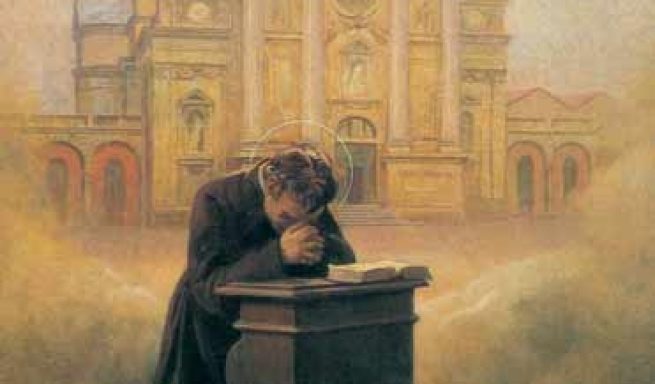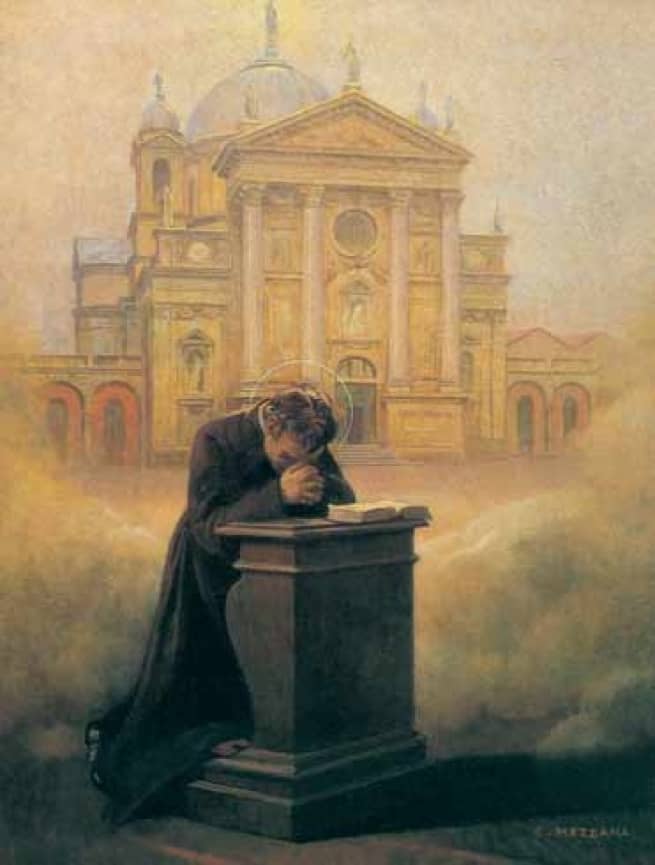(ANS – Rome) – The novena begins today, 22 January, in preparation for the feast of the Father and Teacher of Youth, St John Bosco. In this bicentenary year of the Dream at Nine years of Age, the Salesian iNfo Agency would like to accompany this journey of preparation following up on his countless “dreams”, to let us once again be guided by Don Bosco and his prophetic visions.
Don Bosco had a particular dialogue with God, who spoke to him through dreams. They were never direct communications, but always allegorical, a bit like in the Gospels Jesus often spoke in parables. Here we see a very important characteristic of the Saint: his willingness to let himself be guided by a spiritual father. In fact, he always asked and questioned the one who at that time he considered his guide, on the interpretations of these dreams and what God wanted from him.
And Don Bosco himself initially doubted the value of his dreams. “Many times I attributed them to tricks of the imagination. Telling those dreams, announcing imminent deaths, predicting the future, several times I had remained uncertain, not trusting that I understood and fearing to tell lies. Sometimes I confessed what I thought was risky language, to Fr Cafasso.”
Fr Eugenio Ceria, Don Bosco’s biographer, who compiled the last nine volumes of the Biographical Memoirs, classifies Don Bosco’s dreams into three groups:
– dreams that are nothing more than simple night time dreams;
– dreams that were not dreams, but true visions that took place in broad daylight;
– dreams at night, which reveal dark or future things.
However, it is difficult to distinguish between the three categories. For example, once, Don Bosco dreamed of being in St Peter’s Basilica in Rome, inside the large niche that opens under the cornice to the right of the central nave, perpendicular to the bronze statue of St Peter and the mosaic of Pius IX. He did not know how he came to be up there. He wanted to come down. He called out, yelled, but no one answered. Finally, overcome by anguish, he woke up. A dream caused by bad digestion, it would seem. But those who look at that niche in St Peter’s today see the large statue of Don Bosco by sculptor Canonica. And then you understand that bad digestion had nothing to do with it.
Don Bosco told countless dreams: the first complete collection, taken from the Biographical Memoirs, is by Rodolfo Fierro Torres, who transcribes and translates 153 of them, both long and short ones. Fausto Jiménez, who reviewed and integrated this collection, restored the chronological list to a total of 159 dreams, also offering bibliographic references.
Of all the dreams, some are certainly more significant and relevant than others: if 2024 is dedicated by the entire Salesian Family to exploring the dream at nine years of age, it is precisely because of its enormous charismatic value. Other classifications made by various authors have tried to group them by purpose:
Fr Giovanni Battista Lemoyne, another well-known biographer of Don Bosco, divided them into four groups: “the first embraces those who indicated the works to be carried out and the way in which they were carried out; the second were dreams revealing the state of consciences, vocations, imminent deaths; the third category is didactic dreams; and finally ones that told him about future events of the Church and of the nations.”
Like all classifications Scotti writes, “it is a breakdown that always applies more or less properly to reality. How many dreams in fact are both didactic and prophetic!”
Well aware of this vastness of Don Bosco’s dreamlike and visionary field; of the difficulty of separating dreams from the elements added by tradition or by Don Bosco himself for pastoral purposes; and of short time between now and the coming feast, ANS will try, in any case, to present 9 dreams of Don Bosco, some more famous, others less so, attempting to present through them three different types of Don Bosco’s dreams:
– those of educational-pedagogical value for young people;
– the so-called “missionary” dreams;
– those of prophetic scope for the Congregation and the whole Church.
This too will be a way to continue carrying out Don Bosco’s mission and his dream for young people around the world.
Source: ANS – “Agencia iNfo Salesiana”


